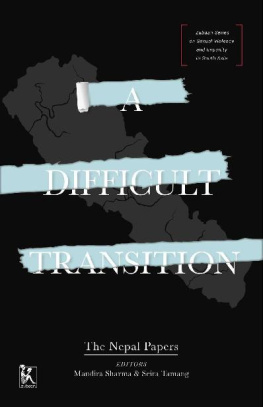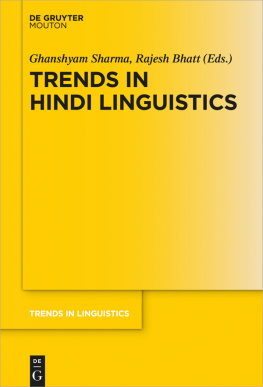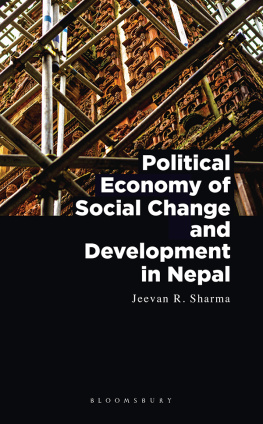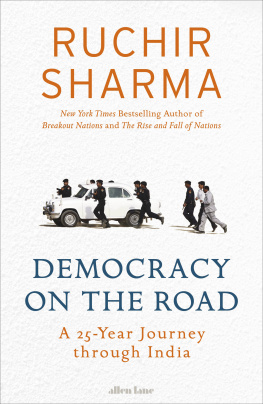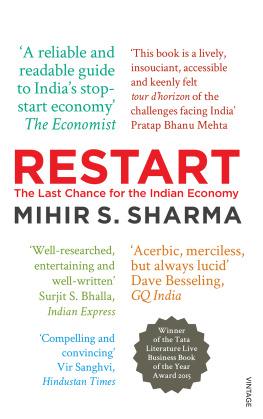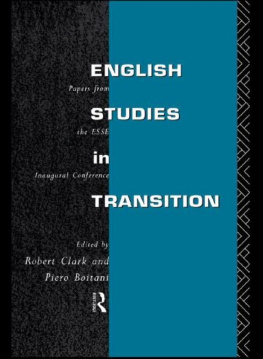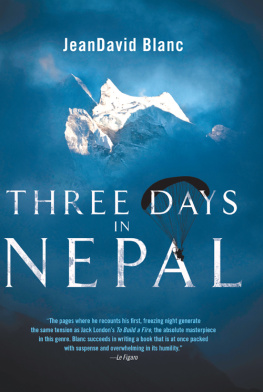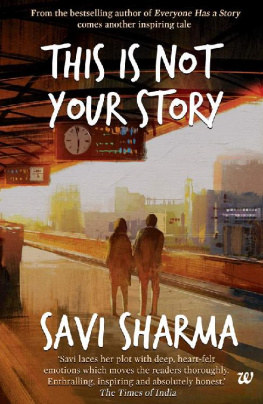A Difficult Transition
The Nepal Papers
The Sexual Violence and Impunity in South Asia research project (coordinated by Zubaan and supported by the International Development Research Centre) brings together, for the first time in the region, a vast body of research on this important - yet silenced - subject. Six country volumes (one each on Bangladesh, Nepal, Pakistan, Sri Lanka, and two on India, as well as two standalone volumes) comprising over fifty research papers and two book-length studies, detail the histories of sexual violence and look at the systemic, institutional, societal, individual and community structures that work together to perpetuate impunity for perpetrators. The essays in this volume focus on Nepal, which though not directly colonized, has not remained immune from the influence of colonialism in its neighbourhood. In addition to home-grown feudal patriarchal structures, the writers in this volume clearly demonstrate that it is the larger colonial and post-colonial context of the subcontinent that has enabled the structuring of inequalities and power relations in ways that today allow for widespread sexual violence and impunity in the country - through legal systems, medical regimes and social institutions.
The period after the 1990 democratic movement, the subsequent political transformation in the aftermath of the Maoist insurgency and the writing of the new constitution, has seen an increase in public discussion about sexual violence. The State has brought in a slew of legislation and action plans to address this problem. And yet, impunity for perpetrators remains intact and justice elusive. What are the structures that enable such impunity? What can be done to radically transform these? How must States understand the search for justice for victims and survivors of sexual violence? The essays in this volume attempt to trace a history of sexual violence in Nepal, look at the responses of women's groups and society at large, and suggest how this serious and wide-ranging problem may be addressed.
Editors: Mandira Sharma and Seira Tamang
Contributors: Mallika Aryal, Bishnu Maya Bhusal, Pranika Koyu, Dhiraj Kumar Pokhrel, Surabhi Pudasaini, Devi (Dhan Kumari) Sunar, Reshma Thapa and Harihar Wasti
About the Editors
Mandira Sharma is a lawyer, human rights activist and founder of Advocacy Forum, Nepal. She has been instrumental in challenging impunity and advocating for a comprehensive transitional justice mechanism.
Seira Tamang is a political scientist with extensive experience in researching dimensions of social exclusion and in promoting practices and policies of good governance in Nepal.
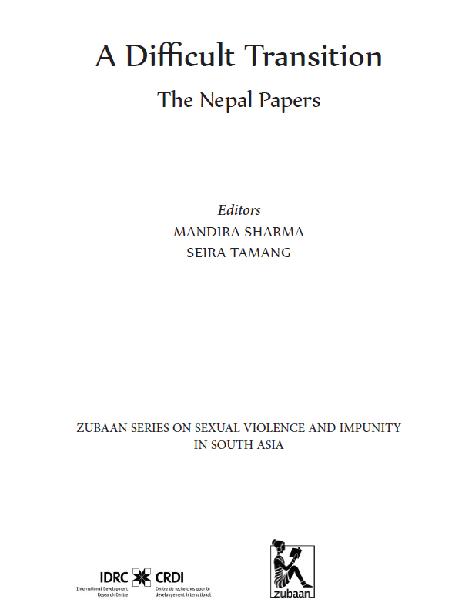
Zubaan
128 B Shahpur Jat, 1 st floor
NEW DELHI 110 049
Email:
Website: www.zubaanbooks.com
First published by Zubaan 2016
Copyright Zubaan 2016
All rights reserved
This project was undertaken with financial support provided by the International Development Research Centre, Canada
10 9 8 7 6 5 4 3 2 1
eBook ISBN: 9789385932120
Print source ISBN: 9789385932052
This eBook is DRM-free.
Zubaan is an independent feminist publishing house based in New Delhi with a strong academic and general list. It was set up as an imprint of Indias first feminist publishing house, Kali for Women, and carries forward Kalis tradition of publishing world quality books to high editorial and production standards. Zubaan means tongue, voice, language, speech in Hindustani. Zubaan publishes in the areas of the humanities, social sciences, as well as in fiction, general non-fiction, and books for children and young adults under its Young Zubaan imprint.
Typeset in Adobe Arabic 14.5/14.5 by Jojy Philip, New Delhi 110 015
Printed and bound at Raj Press, R-3 Inderpuri, New Delhi 110 012
Hello Reader!
This is just a note to let you know that all Zubaan ebooks are completely free of digital rights management (that is, DRM-free), so that you can read them on any of your devices and download them multiple times. We believe that this makes for a more trouble-free and pleasurable reading experience. To be fair to our authors and to enable us to continue publishing and disseminating their work, we appeal to you to buy copies of this ebook rather than share or give it away free. Thank you for your support and cooperation. And happy reading!
Contents
Urvashi Butalia, Laxmi Murthy and Navsharan Singh
Pranika Koyu
Seira Tamang
Surabhi Pudasaini
Seira Tamang
Dhiraj Pokhrel and Mandira Sharma
Mandira Sharma and Dhiraj Pokhrel
Bishnu Maya Bhusal
Mallika Aryal
Reshma Thapa
Surabhi Pudasaini
Interviews
Laxmi Murthy
Laxmi Murthy
Surabhi Pudasaini
Zubaan Series on Sexual Violence and Impunity in South Asia
An Introduction
URVASHI BUTALIA, LAXMI MURTHY AND NAVSHARAN SINGH
The Sexual Violence and Impunity project (SVI) is a three-year research project, supported by the International Development Research Centre (IDRC), Canada, and coordinated by Zubaan. Led by a group of nine advisors from five countries (Bangladesh, India, Nepal, Pakistan, Sri Lanka), and supported by groups and individuals on the ground, the SVI project started with the objective of developing and deepening understanding on sexual violence and impunity in South Asia through workshops, discussions, interviews and commissioned research papers on the prevalence of sexual violence, and the structures that provide impunity to perpetrators in all five countries.
The project began with some key questions and concerns. We noted that recent histories and contemporary political developments in South Asia had shown an exponential increase in sexual violence, particularly mass violence. And yet, even as such violence had increased across the region, so had the ever-deepening silence around it.
Why, for example, had the end of 25 years of violent conflict in Sri Lanka in May 2009 not resulted in an open and frank discussion about sexual violence as a weapon of war? Why had the International Crimes Tribunal (ICT) of Bangladesh set up in 2009 to investigate and prosecute suspects for the genocide committed in 1971 by the Pakistan Army and their local collaborators, paid such little attention to the question of mass rape, despite it being widely acknowledged that it had happened and many women having spoken out about it? Why did discussions on Kashmir in India or Swat in Pakistan, simply ignore the question of sexual violence? Why was caste violence, violence against sex workers and men and transgender persons barely spoken about?
Nor was silence the only issue here. Crucial to maintaining the silence wasand isthe active collusion of States in providing impunity to perpetrators, sometimes under the guise of protective laws and special powers to the armed forces, at others under the guise of nationalism. So heavily were the odds stacked against women that, until recently, very few had dared to speak out. Backed by culture, and strengthened by the State, and often with the active collusion of non-state actors, impunity then, remained largely unchallenged.
We asked ourselves if these conditions were specific to the South Asian region. Elsewhere in many parts of the world, we noted, rape was increasingly being discussed and accepted, not only as a weapon of war, but also as a crime against humanity and as an instrument of genocide. The 1998 Akeyesu judgment by the International Criminal Tribunal for Rwanda (ICTR) provided a clear definition of rape and delineated its elements as a crime against humanity and as an instrument of genocide. In the International Criminal Tribunal for the former Yugoslavia (ICTY) jurisprudence pioneered the approach that used acts of rape and other forms of sexual violence to include elements of other international crimes such as torture, enslavement, and persecution, which previously had not been litigated in the context of gender violence.



